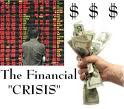The Panic Depression of 1873, was considered the long economic depression followed by years of deflation and instability while the financial crisis of 1929 to 1931 was considered as the Great Depression followed by years of mass unemployment.
The world of today seemed to face a third economic depression, more likely to repeat the previous economic woes of the 19th and 20th centuries respectively. The deteriorating effect of the world economy and millions of people without jobs seem to be unthinkable.
Policy makers as well as economic movers have their hands full, where there are more arguments of how the problem shall be solved. Is the real problem deflation? Or is it inflation? Is it right to adopt frugality when the real problem is inadequate spending?
Their predecessors of previous economic depressions raised interest rates in terms of financial crisis while the current FED and European Central Bank cut interest rates and moved to support credit markets.
Governments of previous economic depressions tried to balance the budgets in the face of deteriorating economy but the governments of today allowed deficit to rise. Do the economic movers or policy makers of today has a better approach of solving the economic problems than what their predecessors have done?
The recession brought in by the financial crisis of today had arguably ended recently. However, history will tell us that in the real sense that it has not yet ended, similar to the business upheaval of 1933 which was not the end of the Great Depression.
What is evidently left in this situation, is the high unemployment rate with no sign of abating. Policy makers or economic movers have to realize that economic recovery shall not be considered complete if the grim picture of high unemployment rates prevail.
Economic movers or policy makers seem to be satisfied for their new approach in improving the economy by instilling austere measures with the hope of reassuring investors. Slash spending in the midst of depression, paves the way for deflation.
The FED seems to be aware of the deflationary risks but has not done anything about it yet. The Obama administration understands the danger of premature financial austerity, since US Congress would not authorize additional aid to state governments, austerity has come up in the form of budget cuts at the local government level.
 Whatever financial rationality behind the thoughts of these economic movers or policy makers in preferring the new approach rather than replicating what has been used by their predecessors, one thing is obvious, that we are in cognizance of the cure rather than its prevention.
Whatever financial rationality behind the thoughts of these economic movers or policy makers in preferring the new approach rather than replicating what has been used by their predecessors, one thing is obvious, that we are in cognizance of the cure rather than its prevention.
Is it not that now, is the right time to upgrade, strengthened and made it stringent our financial regulations as that will be responsive with the times and be assured that such problems shall never, ever be happening again in the future?